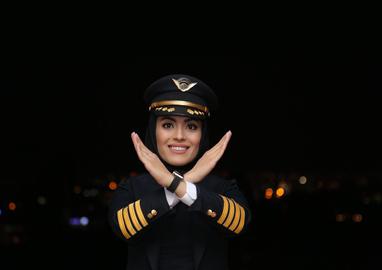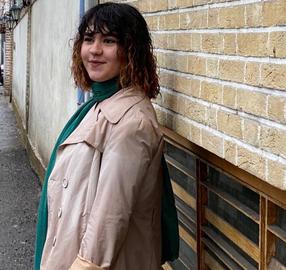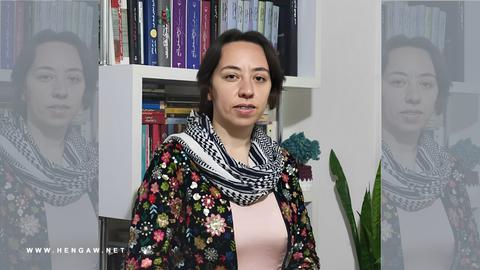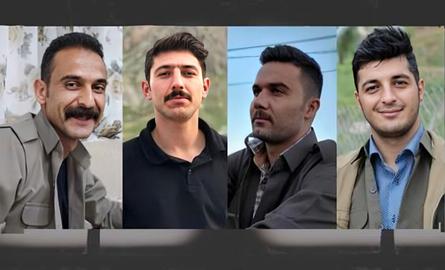Neshat Jahandari has posted a number of videos online about her training and flights, but one video of hers that went viral is especially significant: it is 2019 and she is being awarded the four-stripe captain’s badge from her teacher, a Mr. Shokrabi, at Tehran’s Mehrabad Airport, with a plane in the background. She thanks her husband and her family for their support and empathy on her difficult road to realising her dream.
Jahandari was the first female pilot on a passenger airliner in Iran. She is also the youngest McDonnell Douglas MD-80 captain with Iran’s Zagros Airlines. This being the Islamic Republic, she has an all-female crew.
Defying Prejudice
Born in 1989, Jahandari started learning to fly when she was 17, at the same time that she was studying at university for a degree in aviation flight engineering technology. She began working with the Zagros Airlines in the field of flight safety and the review of flight data monitoring. About three and a half years later the company needed a pilot, she passed the test and was accepted with merit.
After receiving her licence she received all the flight-related documents for the airlines, such as the Commercial Pilot’s Licence and the Instrument Rating. Finally her dream came true and she became a certified pilot. Her first commercial flight as captain was on October 14, 2019 - Flight 4041, from Tehran to Mashhad, with 160 passengers and a female copilot, Forouz Firouzi.
“When I entered pilot school many people were surprised and said this is a male profession and is not suitable for me,” Jahandari says. “This strange behaviour could have been a hindrance to me, but I believed in it and I was doing my job. I believe that everyone who does his or her best in every field will certainly enjoy its result. In today’s world, just as we have male professional chefs, we also have successful female mechanical engineers. Success has nothing to do with gender. Of course, it’s natural to be surprised to see a female pilot,” she says.
Jahandari is married to Farid Shah-Pasandi, also a captain with Zagros Airlines.
There are no options for women to train as pilots within Iran’s traditional education structure and the government does not offer scholarships to train them, but women can qualify at private aviation schools as long as they are able to pay the full tuition themselves.
The first aviation college for women, Aseman Vocational School, was established in 2004, offering undergraduate and postgraduate degrees and other courses in Private Pilot Instruction, avionics, repairs and maintenance and flight guidance. Since then more aviation colleges have been established. All charge tuition fees, but IranWire’s requests for details of the fee structures were refused or unanswered.
Cost of Training is an Obstacle
After she qualified as a pilot Jahandari's Instagram followers, mainly young men and women interested in pursuing aviation as a career or a hobby, contacted her to ask about her experiences during training, and also about how she could afford it. One female follower, although she had praise for Jahandari, pointed out that her success was probably due to the financial support her father and family had given her, and shared her own experience of being unable to pursue her goals because of the expense. Jahandari was sympathetic, acknowledging that effort alone was not enough and regretting the fact that there were no scholarships for women in Iran who wanted to become pilots.
Jahandari is the first practising commercial flight captain in Iran but there is some disagreement about who was actually the first woman to become a pilot in Iran. Some refer to an interview with Efat Tejaratchi in in May 1973 in which she said she was the first female volunteer to join the Aviation Club soon after it was established.
Some hail Akram Monfared Arya, who worked as a pilot up until the 1979 revolution, raising children at the same time, as Iran’s first female pilot. Others have also been given the unofficial accolade of first female pilot, including Ghodsieh Farrokhzad Naraghi, Ina Ushid, Ozra Rahimi, Derakhshandeh Malakouti and Safieh Partovi. There is no agreement on who the first female Iranian pilot after the revolution was either. Many names have been put forward, including Shahrzad Shams, Fahimeh Ahmadi Dastjerdi and Anahita Nikookar.
“Under the Pahlavi monarchy the training of women to become pilots moved very slowly but the will was there,” says Hossein Aryan, a military affairs analyst. “For instance, a woman could become a police officer or even an officer in the navy. To be a member of the navy you must board a battleship where you cannot separate genders the way you do on land. But in those days several women joined the navy and took training courses on long sea voyages. Training woman pilots was also becoming common, but after 1979 the religious environment would not allow it.”
The news of Jahandari becoming a captain in July 2019 was shared widely, and Iranians hoping for greater advances for women in the airline industry, and across other industries in Iran, were encouraged and inspired by her achievements against so many odds and against the prejudice so deeply entrenched within Iranian society.
visit the accountability section
In this section of Iran Wire, you can contact the officials and launch your campaign for various problems

























comments